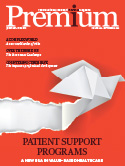UAE medical cover costs may rise by 8% in 2021

Employer-sponsored medical insurance costs are expected to increase by eight percent in the UAE in 2021, after the pandemic impacted health care demand and overall costs globally, according to research by Willis Towers Watson.
The organisation’s 2021 Global Medical Trends Survey found that medical insurers globally reported that health care benefit cost increases have slowed from 7.2 percent in 2019 to 5.9 percent this year, but are expected to climb to 8.1 percent in 2021. The dip this year is largely due to the cancellation of medical appointments and elective, non-emergency treatment during the global pandemic, which placed huge stress on health care infrastructure in many markets.
In the UAE, the trend has fallen from 9 percent in 2019 to eight percent in 2020, and is forecast to remain at eight percent in 2021. COVID-19 has reduced utilisation of health care services through the lockdown period in the UAE and, whilst there has been some rebound from delayed treatments, that lower demand is expected to continue into next year. Also, insurers in the UAE picked up some elements of COVID-19 related costs in 2020, and so are not expecting a significant uplift in 2021 trend.
Another explanation for costs in 2021 remaining at 2020’s rate could be the anticipated fall in costs from the new approach to health services costing in Dubai. This is based on Diagnostic Related Groups (DRGs), a method of clustering services to avoid over-utilisation and charging which has had a positive impact on health spending in other parts of the world.
Steve Clements, head of Global Services and Solutions for the Middle East, Willis Towers Watson, said: “Health care costs in the UAE have been more stable through the pandemic than in some countries, but COVID-19 has been a huge disruptor and we expect some volatility and uncertainty to remain in 2021.
“The pandemic has delayed non-urgent surgeries and appointments, and there is a lot of catching up to do in 2021 and beyond. The virus will continue to cause great uncertainty in many countries as cases continue to rise, while the roll-out, costs, and efficacy of any future vaccine remain unclear.
“There has also been a huge impact on mental health and wellbeing throughout the pandemic and many repercussions will likely be felt into 2021. Our survey found that four in 10 respondents predict mental health conditions will be among the three most common conditions affecting health care costs within the next 18 months.”
The study also found that over two-thirds (67 percent) of respondents expect medical costs to continue to accelerate over the next three years. Almost 90 percent of Middle East and Africa insurers expect higher medical trends over the next three years, and that figure was lower at 77 percent in Europe. Only 40 percent of Asia Pacific insurers expect a higher medical trend.
Clements added: “Health care continues to get more expensive globally, and in the Middle East we are not exempt. The global focus on health and wellbeing caused by the pandemic will prompt many companies and individuals to take a long hard look at their medical cover to ensure that it is adequate for their changing needs, whilst still affordable.
“More positively, coronavirus has greatly accelerated the use of telehealth and virtual appointments. This could help to offset any future higher costs and offer more efficient access to patients, though it may also increase demand and hence overall costs.”
Global medical trends: Health care benefit cost growth, 2019 – 2021
| 2019 | 2020 | 2021 projected | |
| Global+ | 7.2% | 5.9% | 8.1% |
| North America | 5.6% | 2.8% | 7.1% |
| Latin America+ | 10.8 | 9.0% | 13.6% |
| Asia Pacific | 7.5% | 6.2% | 8.5% |
| Europe | 5.6% | 4.2% | 5.8% |
| Middle East/Africa | 8.6% | 8.7% | 10.0% |
| UAE | 9.0% | 8.0% | 8.0% |





































